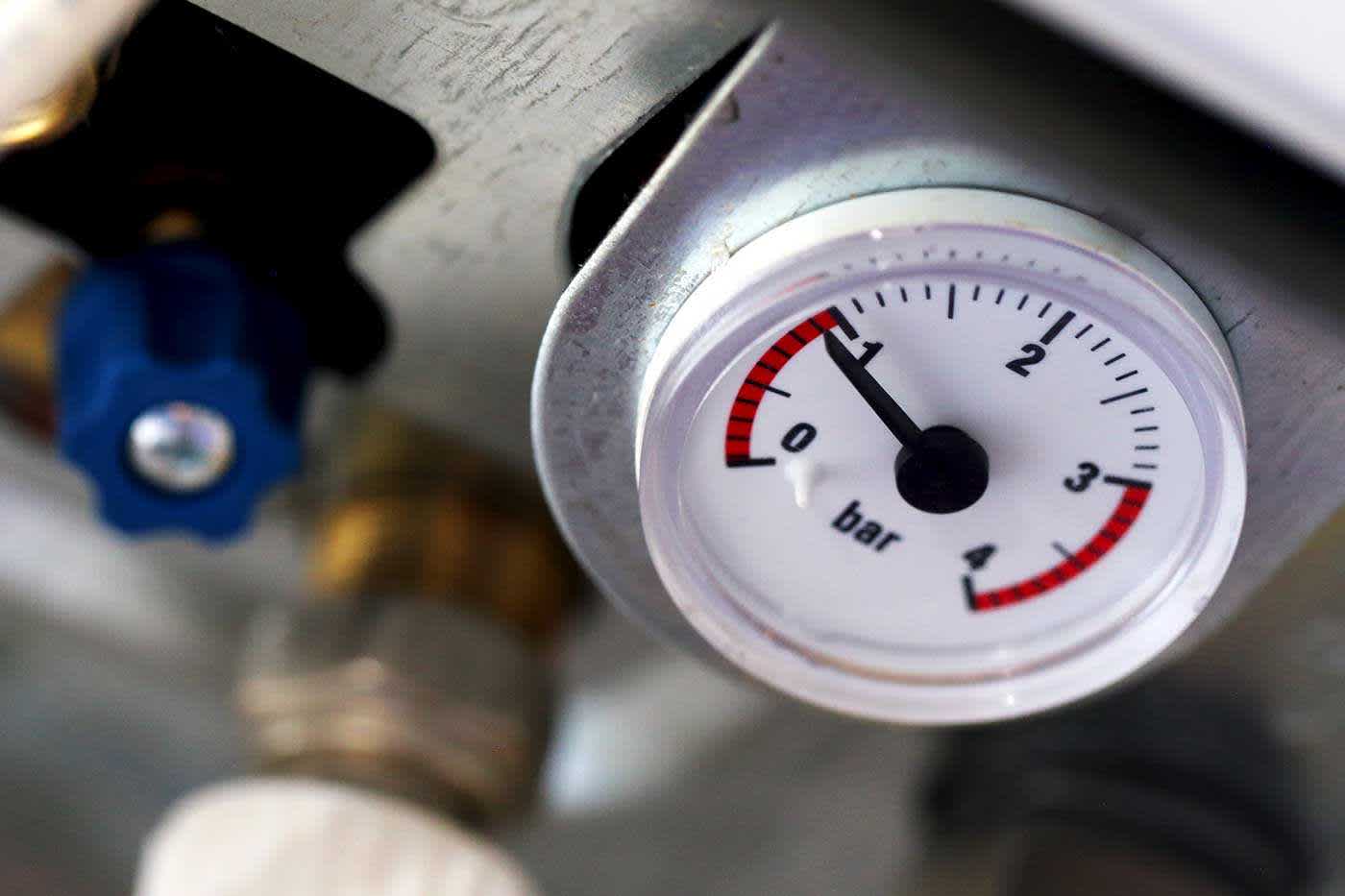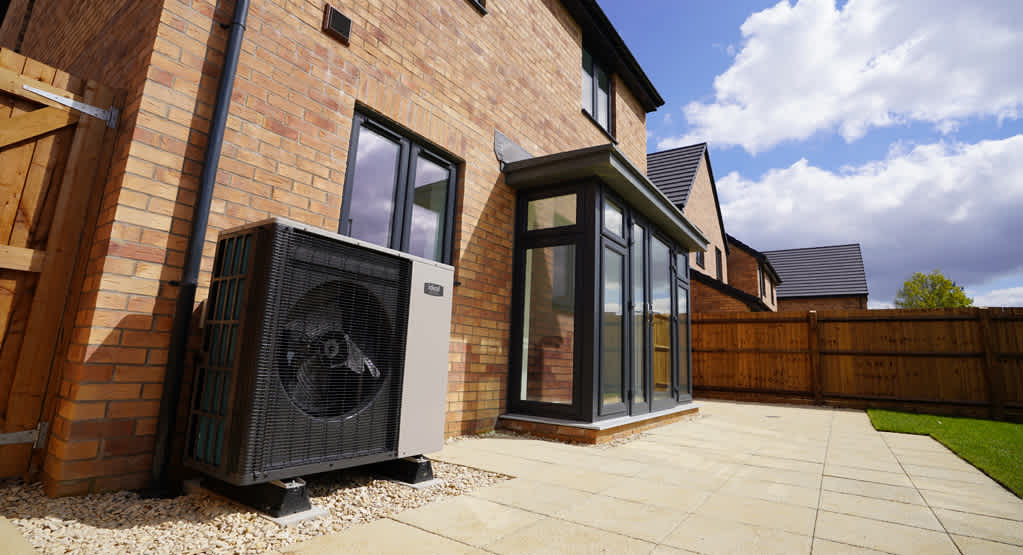
Boiler pressure too high: How to fix it
Are you concerned about high boiler pressure? Then you’re in the right place. The normal range for gas boiler pressure is between 1 and 2 bar, so you need to take action if yours falls out of this range. It’s important to remember that boiler pressure varies as water heats or cools, and usually sits around 1 to 1.5 bar when the heating is off.
If pressure is less than 1 bar, then you may have lost water from the system. If it’s over 2.75 bar, then it’s likely you’ve got high boiler pressure. Read on for everything you need to understand about high boiler pressure, from how to reduce it, whether it’s dangerous, and how to prevent it from happening again.
Is high boiler pressure dangerous?
High boiler pressure is unlikely to be dangerous, as your system should have a pressure relief valve that will trigger and turn the boiler off if it exceeds a certain bar. However, you shouldn’t rely on this to prevent over-pressurisation. It’s inefficient, and if the relief valve is faulty or jammed, it could be dangerous.
Boiler pressure relief valve location
On most boilers, the pressure relief valve is located on the top or side of the boiler. Your boiler’s user guide should detail where the valve is. It’s also worth knowing the valve is connected to the hot water, so look for pipes and you should find it.
What happens if boiler pressure is too high?
In most cases of high boiler pressure, the pressure relief valve will step in to control the pressure back to a normal range. If boiler pressure gets too high, this valve should turn the boiler off.
In extremely rare cases, high boiler pressure can rupture the boiler, which could lead to an explosion. It’s important to have your boiler serviced annually to check that all parts of the system are working properly.
Contact us to book a boiler service.
How to know if boiler pressure is too high
So, how do you know if your boiler pressure is too high? Our engineers have listed ways to check whether your boiler pressure is too high, too low, or just right.
Check your boiler’s pressure gauge
The first port of call should be your gas boiler’s pressure gauge. This is on the boiler itself and is either an analogue (pointer) display or a digital display.
Where to find boiler pressure gauge
An analogue display will look like a clock face or speedometer, with a needle pointing to the pressure. It will have numbers around the edge, but it should also have some kind of indication of where the ideal range is. For example, a shaded area or two lines marking the maximum and minimum pressures.
A digital gauge will be an LCD or LED screen type. It might be multi-function - for instance, it displays other information, such as timers, temperatures, or whether the boiler is serving central heating or hot water. Sometimes you have to press a button to scroll through different measurements until you reach the pressure indicator. The screen might also show an error message or fault code if the pressure has tripped it out.
How to read the boiler pressure gauge
Your boiler manual will have details of what ‘normal’ pressure looks like for your model. It will also have instructions on how to use your analogue or digital displays to see the current pressure of your boiler. If your boiler pressure is in the correct range, there’s nothing to worry about. If it’s too high or too low, then you need to seek advice on how to increase or decrease pressure.
Check for leakage from your central heating system
In the unlikely event that the pressure gauge is faulty, another tell-tale sign of high boiler pressure is leakage from your central heating system. This normally starts at the weakest link, so leaks will show themselves at joints, often where pipework joins radiators. If you see puddles of water, it’s worth checking your pressure. And remember, you’ll also need to have the leak fixed by a plumber!
Learn what to do if your boiler is leaking.
How to reduce pressure from your boiler
Once you’ve diagnosed high pressure in your boiler system, the next step is to reduce it. There are several ways to release high pressure and we’ve ordered them by ease below. However, the techniques are not available to every system, so if you need further support, please contact Ideal Heating’s engineers for help or visit our tips and advice page.
1. Open the filter valve
Many (but not all) central heating systems have a filter which water continually cycles through to remove impurities, like the Ideal System filter. The filter also doubles up as a drainage valve and is perfect for relieving pressure in the system. Put a bucket under the filter, open the valve, and keep an eye on the gauge. Close the valve when it reaches 1 bar. Your boiler pressure should now be back in a ‘normal’ range.
Where to find the filter valve
You’ll normally find the filter valve near the boiler. It should be located between the last radiator and the boiler to ensure your boiler is best protected. The filter will either be cone or cylinder shape, with a valve at the bottom.
2. Use a drain-off valve
If you don’t have a filter, you might have a drain-off valve (also known as a ‘drain cock’). This is located in the pipework for the central heating system. Place a bucket or tub underneath the drain-off valve and open it up, checking the pressure on the boiler. When the pressure reaches 1 bar, close it.
Where to find the drain-off valve
The drain-off valve could be anywhere in your heating system’s pipework, and there could be several. Look for a Y-shaped or T-shaped component branching from the pipework. The valve might require a spanner to open. If you know there’s just one, it will probably be downstairs.
3. Bleed a radiator
As well as releasing air trapped in the system, bleeding can also be carried out to lower the water pressure.
Locate the bleed valve on a radiator.
Place a bucket or tub underneath or next to the valve.
Open the valve gently.
Remember, water will come out of the valve when you bleed the radiator, so make sure you cover/protect any wallpaper and carpets nearby. While bleeding a radiator does release pressure, it’s very slow, so we recommend you try one of the other methods first and read our advice: How to bleed a radiator.
4. Undo a radiator nut
This is a more specialist job, and should only be attempted if you’re a confident DIYer and none of the above methods are possible. To undo a radiator nut, place a container underneath the nut that connects the pipework to the radiator, and gently undo it with a spanner. You’ll get a much faster flow than with bleeding, so be prepared for splashing - and get ready to tighten up the nut quickly in case you need to!
How to prevent high boiler pressure
Once you’ve got your pressure back to normal range, you should investigate why it has happened in the first place. This will prevent it happening again and will help make sure your boiler is in safe and efficient working order.
Check your central heating system’s filling loop
The filling loop is where water enters the system from the mains and consists of two valves. When both valves are open, the system lets more water in, and the pressure rises. So, a prime suspect for high pressure is these valves being left open accidentally.
Filling loop valves turn by 90 degrees. If the handle is aligned with the pipe, it means it’s open. You need to make sure both valves are closed – your system circulates its water and rarely needs topping up.
Sometimes, a detachable length of hose connects to the two valves in the filling loop rather than permanent pipework. If it’s the hose type of loop and the hose isn’t connected, you can rule out the valves being open, as you’d see water pouring out!
Is my filling loop too full?
It’s possible that someone else has responded to low pressure in the past (for example, after bleeding the radiators) by adding more water via the filling loop. While that’s the right thing to do, people sometimes overfill it by accident.
Learn more about low boiler pressure: Why is my boiler losing pressure?
Check for a faulty expansion vessel
The expansion vessel helps keep boiler pressure consistent and prevents sudden changes. If this is faulty or damaged, the pressure might be raised. Do not attempt to inspect or fix this yourself – it’s a professional job.
Have your boiler serviced regularly
Best practice for keeping your boiler’s pressure in the correct range is to have it serviced regularly. We recommend you have boiler servicing annually to make sure your boiler is in a safe, working order and is running efficiently. Use the links below to learn more about boiler services:
If you’ve already had a service this year and your boiler pressure keeps getting too high or too low, it’s time to call out a Gas Safe registered engineer from Ideal Heating.
















